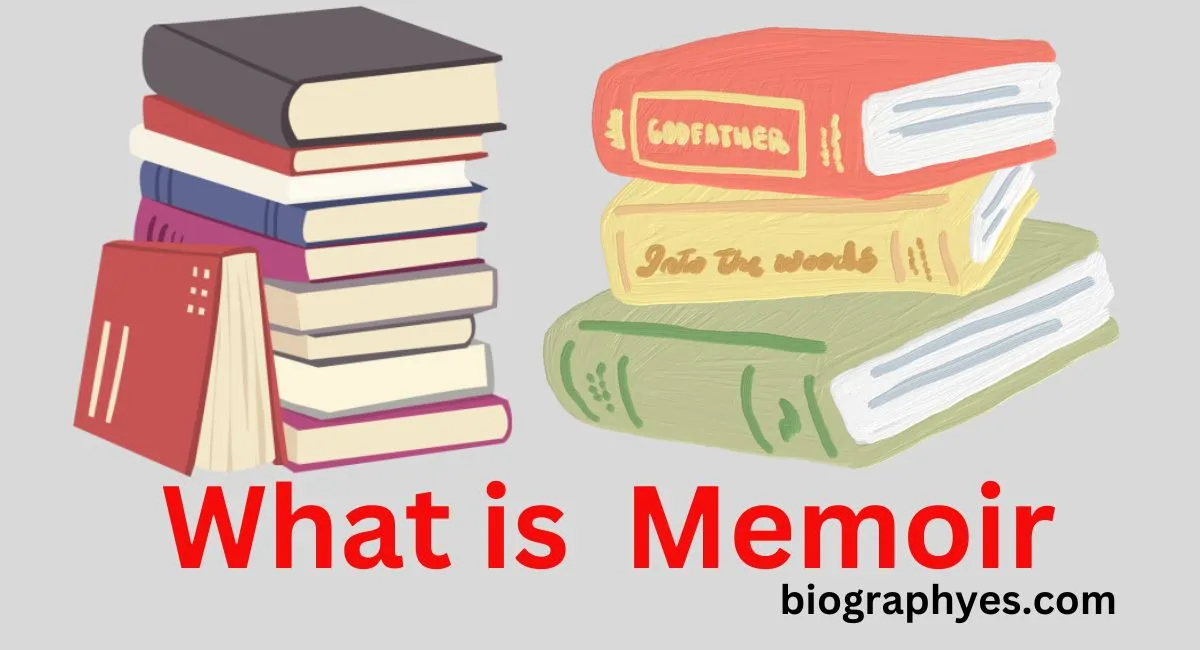Ever wondered how a single narrative can encapsulate a lifetime’s worth of experiences? Welcome to the world of memoirs, where personal stories take center stage, transforming ordinary lives into extraordinary tales. A memoir provides more than just a simple recount; it reveals the essence of one’s soul, often evoking emotions that resonate universally.
Memoirs date back centuries, offering rich historical perspectives blended with personal anecdotes. Unlike autobiographies, they focus on specific life events or periods, often unveiling deeply personal insights. It’s fascinating to note that over 60% of memoirs reflect a transformative journey, making them relatable and compelling reads for audiences across the spectrum.
A memoir is a literary genre where the author recounts personal experiences and insights, focusing on specific periods or events rather than covering their entire life. It emphasizes emotional depth and reflection, offering readers an intimate glimpse into the author’s inner world, often revealing universal truths through individual stories.
Defining Memoir
A memoir is a narrative that focuses on the author’s personal experiences. It captures specific moments or periods, often revealing deeply emotional and intimate details. Unlike an autobiography, which chronicles an entire life, a memoir zeroes in on particular events. This makes memoirs more focused and intense. They help readers understand the personal journey of the writer.
Memoirs offer a window into the author’s world through storytelling. They often blend facts with emotions, creating an engaging read. What sets a memoir apart is its ability to connect with readers on a personal level. Many memoirs include reflective insights, making them more than just a recount of events. These reflections provide depth and meaning.
Many famous personalities have written memoirs, giving readers an inside look at their lives. For example, Michelle Obama’s “Becoming” explores her life from childhood to her time in the White House. Memoirs like these offer inspiration and life lessons. They can also shed light on historical events from a personal perspective. By sharing their stories, authors enable readers to learn and grow.
Memoirs can be structured in various ways. Some follow a chronological order, while others jump between different times. This flexibility allows authors to craft their stories creatively. Including vivid details and emotions helps make the story relatable. Various elements like dialogue and descriptive language enhance the narrative.
Unveiling the Essence of Memoir
The essence of a memoir lies in its ability to lay bare the author’s innermost thoughts and experiences. It’s not just about recounting past events, but also about analyzing and understanding them. This reflective nature helps readers connect with the author on a deeper level. Each story shared in a memoir is rich with personal insights. These insights can be thought-provoking and inspirational.
Many memoirs aim to provide a sense of closure or understanding to life’s challenges. They often explore themes such as family, identity, and resilience. Through these themes, readers can find parallels to their own lives. This shared experience creates a bond between the author and the reader. It makes the stories more impactful and memorable.
One key aspect that makes memoirs engaging is their authenticity. Readers can usually tell when an author is being genuine. This honesty allows memoirs to stand out in the literary world. Authors share their vulnerabilities, successes, and failures. This rawness is what captivates the audience.
Memoirs often feature a unique perspective that offers new insights. These perspectives can challenge societal norms or offer new ways of thinking. For example, a memoir may provide a firsthand account of living through a historical event. Such perspectives allow readers to see the world through different eyes. This enriches the reader’s understanding of the human experience.
Significance of Memoir as a Genre
Memoirs hold a special place in literature due to their honest and personal nature. They offer readers an intimate glimpse into the author’s life, allowing for a unique connection. This genre provides a platform for voices that might otherwise go unheard. The real-life experiences shared in memoirs can educate and inspire. By reading memoirs, people can learn from the successes and failures of others.
The impact of memoirs extends beyond personal stories. They often touch on universal themes such as love, loss, growth, and resilience. These themes resonate with readers from all walks of life. Memoirs can also bring attention to social issues, offering personal accounts that highlight broader societal problems. This makes them powerful tools for advocacy and change.
Table highlighting the impact of memoirs:
| Aspect | Impact |
|---|---|
| Personal Connection | Readers feel a close bond with the author. |
| Education | Provides insight into different lives and cultures. |
| Social Awareness | Brings attention to important issues. |
| Inspiration | Motivates readers through shared experiences. |
Memoirs can also play a vital role in personal healing for both the writer and the reader. For the writer, the act of recounting and reflecting can be therapeutic. Readers may find solace in the fact that others have faced similar struggles. This shared experience fosters a sense of community and understanding. It reminds people that they are not alone in their journeys.
The Art of Writing a Memoir
Writing a memoir is more than just putting pen to paper; it involves deep reflection and storytelling. The author must delve into their past and select the experiences that are most impactful. This process requires honesty, as genuine emotions resonate best with readers. It’s important to focus on vivid details that paint a clear picture. These details breathe life into the narrative.
Structure plays a key role in crafting a compelling memoir. Authors can choose to write in a chronological order or jump between time periods. This flexibility allows them to highlight the most significant moments. Including dialogues and inner thoughts helps make the story more engaging. They give readers a clearer sense of the author’s experiences.
Many memoirs employ a thematic approach to tie the narrative together. Themes like resilience, love, or identity can provide a cohesive thread throughout the story. They help organize the memoir and make it more relatable. Readers can see how specific events connect to larger life lessons. This adds depth to the narrative.
Editing is a crucial step in the memoir-writing process. It’s essential to review and revise multiple drafts to ensure clarity and coherence. Seeking feedback from others can provide valuable perspectives. Sometimes, an outside view can highlight parts of the story that need more detail or clarification. This process helps polish the memoir.
Using a table can also help outline key elements of the memoir:
| Element | Description |
|---|---|
| Introduction | Sets the tone and context. |
| Main Events | Highlights significant experiences. |
| Reflection | Provides insights and lessons learned. |
| Conclusion | Offers closure or a final thought. |
Differentiating Memoir from Autobiography
While both memoirs and autobiographies recount an author’s life, they differ significantly in scope and style. An autobiography typically offers a comprehensive look at the author’s entire life. This means it covers their childhood, adulthood, and later years. Autobiographies focus on providing a chronological order of events. They aim to present an overarching view of the author’s experiences.
On the other hand, memoirs focus on specific periods or events in the author’s life. This makes them more intimate and focused. The narrative often centers around a particular theme or turning point. Memoirs dive deep into personal experiences, sharing emotions and reflections. This makes them more relatable and engaging for readers.
List of key differences:
- Scope: Memoirs are more focused, while autobiographies are comprehensive.
- Structure: Memoirs are often thematic, while autobiographies are chronological.
- Depth: Memoirs focus on emotions and reflections, autobiographies on facts.
- Purpose: Memoirs aim to connect personally, autobiographies to inform.
Another key difference lies in their purpose and audience. Autobiographies often aim to provide a historical record of the author’s life. They are usually written by people well-known in their fields. Memoirs, however, prioritize emotional connection over comprehensive detail. This makes them appealing to a wider audience. By sharing relatable experiences, memoirs touch readers’ hearts.
Ultimately, the choice between writing a memoir or an autobiography depends on the author’s goals. If they want to offer a detailed account of their life, an autobiography is the way to go. For those wishing to highlight specific experiences and reflections, a memoir is more suitable. Both genres have their unique strengths and can offer rich, valuable insights. It all depends on the story the author wants to tell.
Impact and Influence of Memoir on Readers
Memoirs have a profound impact on readers by offering a window into someone else’s life. This transparency allows readers to connect on an emotional level with the author. They may see parts of their own experiences reflected in the story. This connection can be comforting and enlightening. It helps readers realize they are not alone in their feelings and struggles.
Memoirs can also serve as powerful educational tools. They offer firsthand accounts of historical events, cultural shifts, and personal challenges. This provides readers with a richer understanding of different perspectives. They learn about situations and emotions they may never encounter otherwise. Thus, memoirs foster empathy and understanding.
Many readers find inspiration in memoirs. They might draw strength from an author’s resilience in the face of adversity. These stories can motivate readers to overcome their own challenges. They often gain new insights or strategies for dealing with difficulties. This motivational aspect makes memoirs deeply influential.
List of ways memoirs influence readers:
- Emotional Connection: Readers feel linked to the author’s experiences.
- Education: Provides insights into different cultures and histories.
- Empathy: Fosters understanding and compassion for others’ experiences.
- Inspiration: Motivates readers to face their own challenges.
The authenticity in memoirs also plays a critical role. Readers appreciate real stories told with honesty and vulnerability. This authenticity makes memoirs stand out and be memorable. It builds trust between the author and the reader. That trust enhances the overall impact of the memoir.
Ultimately, memoirs leave a lasting impression because they speak to the human experience. They capture the highs and lows of life in a way that resonates deeply. By sharing personal stories, authors contribute to a collective understanding of what it means to be human. This shared understanding unites readers from all backgrounds. It emphasizes our common humanity.


Frequently Asked Questions
A memoir is an engaging literary form that offers personal insights and reflections. Here, we’ll explore some common questions related to memoirs to deepen your understanding of this fascinating genre.
1. How is a memoir different from a novel?
A memoir is based on true events and the author’s personal experiences, whereas a novel is usually fictional. The focus in a memoir is on real-life occurrences and genuine emotions, making it more intimate. In contrast, novels can explore imaginative worlds and characters, offering broader storytelling possibilities.
Memoirs provide readers with a transparent look into the author’s life, inviting them to share in their journey. Novels allow authors to create entirely new universes and narratives without constraints of truth. Both genres have unique strengths but fulfill different literary needs.
2. Why do people write memoirs?
People write memoirs for various reasons, including self-reflection, healing, or sharing life lessons with others. It’s often a way for authors to process important events in their lives and offer insights they’ve gained along the way.
Additionally, memoirs can serve as historical records or social commentaries, providing perspectives on societal issues. They help preserve stories that might otherwise be forgotten and foster connections between readers by highlighting common human experiences.
3. What makes a good memoir?
A good memoir combines authenticity with compelling storytelling. Readers value honesty and vulnerability in the narrative since these qualities build trust and engagement.
The use of vivid details and emotional depth further enriches the reading experience. Well-written memoirs also include themes that resonate universally, making personal stories relatable to a wider audience.
4. Can anyone write a memoir?
Yes, anyone can write a memoir if they have significant life experiences they’d like to share. The key is being open about one’s emotions and perspectives while focusing on impactful moments.
No extraordinary qualifications are needed; what matters most is the ability to tell your story genuinely. Even everyday events become compelling when told through captivating prose with deep reflection.
5. Are there specific structures or formats for writing a memoir?
No fixed structures define how one should write a memoir; authors have creative freedom in their approach. Many choose chronological order but thematic arrangements are also popular if they highlight particular aspects effectively.
Some writers employ flashbacks or employ multiple points of view within their narratives for added complexity. Ultimately it depends on how best you want your story told – your voice remains central throughout any chosen format!
Conclusion
Memoirs hold a unique place in literature by blending personal experiences with universal themes. They offer readers a deep, emotional connection to the author, making them both engaging and insightful. By focusing on specific events and reflections, memoirs provide powerful narratives that resonate deeply.
Whether written for self-reflection, healing, or to share life lessons, memoirs are invaluable. They capture the human experience in a way that is both intimate and influential. As a genre, memoirs continue to inspire, educate, and connect readers across the globe.


